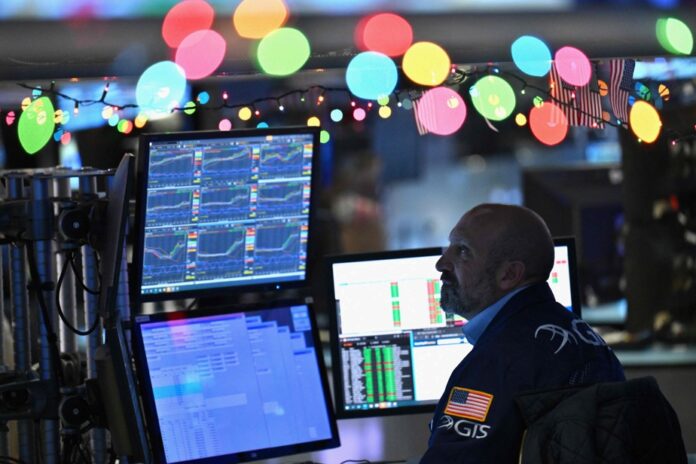Despite a rather calm last session, on Friday, the main stock markets of the world completed the home stretch of 2023 with value rebounds which, after a bearish episode in mid-year, brought them back very close to their previous peaks .
In the United States, the S index
In Canada, the S
Over the entire year of 2023, the flagship index of the Canadian Stock Exchange increased by 11%, but it still remains below its record of 22,000 points established in March 2022.
In Europe, stock indices increased slightly on Friday to further enhance their 2023 results.
Over the year, the main pan-European indices Euro Stoxx 50 (up 19%) and Stoxx 600 (up 12%) both recorded their third performance in 10 years.
In London, the FTSE 100 index remained behind, only increasing by 3.7% in 2023.
In Asia, the Nikkei index of the Tokyo Stock Exchange saw a rebound of 28% in 2023, its best annual performance in ten years.
By contrast, in Hong Kong, the Hang Seng Index suffered a fourth year of decline, down 13%, as investors continued to shun China.
“The stock market performed rather well at the end of the year despite high economic and geopolitical uncertainty,” summarized Brendan Caldwell, president and CEO of the Toronto firm Caldwell Investment Management, in an interview with the D channel. BNN Bloomberg stock market information.
“On the one hand, better-than-expected corporate earnings supported positive market dynamics. On the other hand, investor optimism was supported by the growing perception that the US Federal Reserve (Fed) has been able to tamp down inflation, but without causing a full-blown recession. Which could open the door to a reduction in interest rates during the first months of 2024.”
On this momentum, what is the outlook for the start of 2024? In the view of investment fund managers at the Royal Bank, stock markets have risen so quickly over the past two months that they would be highly vulnerable to a downturn if the U.S. economy were to slip into even a mild recession.
The likelihood of such an economic slowdown is still around 70% despite increasingly frequent predictions of a “soft landing,” warns RBC Global Asset Management chief economist Eric Lascelles in the recent investment prospects of this subsidiary of the Royal Bank.
However, underlines Eric Lascelles, even if rate reductions were to take place in 2024, the global economy has not yet fully absorbed the impact of nearly two years of monetary policy tightening. Historically, the average time between the first U.S. rate hike and the start of a recession is about 27 months.
“The risk of recession has decreased slightly, of course, but the strong surge in stock market values rather suggests that this risk of recession has decreased remarkably,” underlined Eric Lascelles in an interview with the financial information agency Bloomberg.
“The S index















